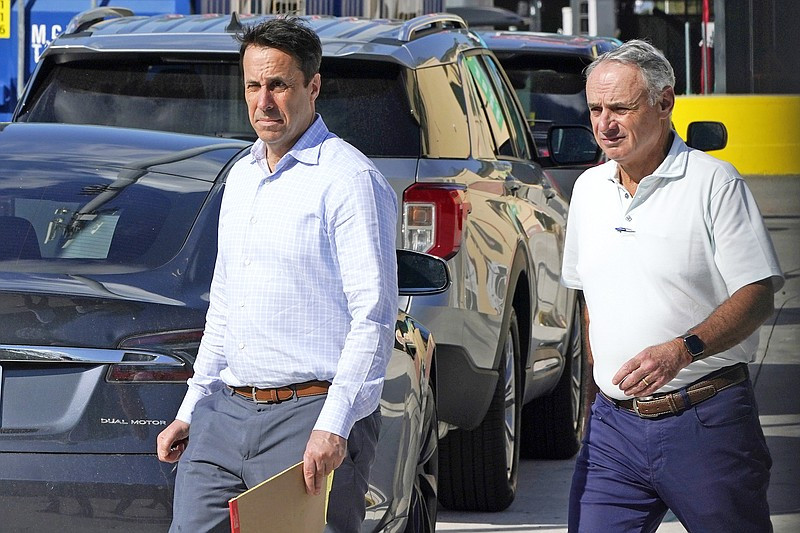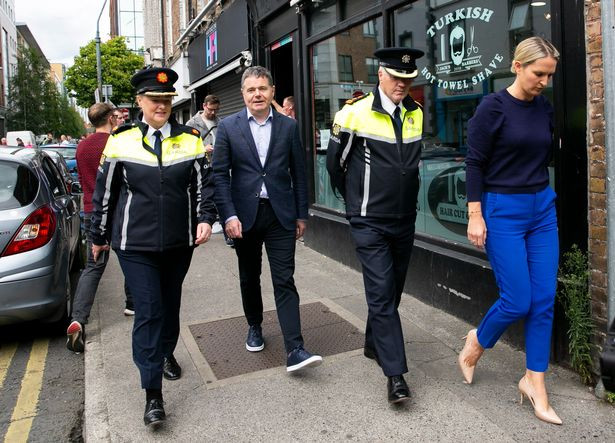The Department of Justice has extended the deadline for applications for a key national security post after it drew little interest from suitable Irish candidates. The position of Deputy Commissioner in charge of policing and security, the second highest position in An Garda Síochána, has been vacant since March despite repeated attempts by Government to fill the post. Senior gardaí are highly reluctant to apply due to Revenue rules that would see them hit with a large tax bill on their pension if they took up a higher salary. As a result, the only qualified applicants for the highly sensitive role have come from police officers from outside the State, including the United States, UK and Northern Ireland.
The Government launched its latest attempt to fill the position a month ago when it sought candidates with a “keen understanding or the capacity to acquire the particular considerations of policing on the island of Ireland”. Typically the role of deputy commissioner would be filled by an applicant of assistant commissioner rank, the next most senior garda rank. However, seven of the eight current assistant commissioners refused to apply. It is understood the only one to make an application was Jonathan Roberts, assistant commissioner for governance and accountability. He was a member of the PSNI for 25 years before being appointed to his current post, meaning he would be largely unaffected by the pension tax issue. If he were appointed, all three of the most senior garda positions would be occupied by officers from outside the State.
Drew Harris, from Northern Ireland, is already Garda Commissioner, and Deputy Commissioner Shawna Coxon is from Canada. This week a group of assistant commissioners wrote to Mr Harris and the chair of the Policing Authority, Elaine Byrne, asking them to extend the application deadline with a view to solving the pension impasse. The application process was due to close at 3pm on Thursday. However, shortly before the deadline on Thursday afternoon, it was extended by another week.
The Pension Tax Issue: A Major Roadblock
The six assistant commissioners born in the Republic had expressed disappointment a fresh recruitment competition was launched before their concerns were addressed. Gardaí are concerned that pension rules will land them with very significant tax bills – up to €300,000 for the current assistant commissioners on retirement, rising up to €500,000 for deputy commissioners. The rules, which were introduced in 2014, require civil servants to pay tax on their pensions if they are worth more than €2 million. This tax is payable on the entire pension, including the initial lump sum payment. In some cases, this means senior garda would receive a smaller pension by taking up a higher paid position before retirement. They are seeking some relief on those pension tax bills before they look for more senior posts.
Government’s Response and the Future
Earlier this year the Government promised a review of the tax system to address these concerns. This review has been completed and given to the Minister of Finance. However, its recommendations have yet to be published. A Department of Justice spokesman confirmed the deadline has been extended for a week. He said Minister for Justice Helen McEntee intends to appoint someone to the role in the autumn. The spokesman said Ms McEntee is “aware of the concerns of senior officers of An Garda Síochána” but that any decision to adjust the pension tax is a matter for the Minister for Finance. It can only be considered as part of the budgetary process which is currently underway, he said. “The Minister for Finance is now considering the review and Government will consider the next steps in the coming weeks. This tax law applies to all public and private sector workers who have a pension above a certain threshold, and is a matter for the Department of Finance.”
The Impact on Security: A Lack of Irish Leaders?
The situation has raised concerns about the potential impact on national security. With senior positions being filled by officers from outside the State, some have questioned whether there is a lack of qualified Irish candidates willing to take on these leadership roles. The reluctance of Irish gardaí to apply for the Deputy Commissioner role due to the pension tax issue highlights the need for a comprehensive solution to this problem. This could involve a review of the pension tax system, or a targeted exemption for senior garda positions, ensuring that qualified and experienced Irish officers are not deterred from pursuing leadership roles within An Garda Síochána.
The decision to extend the deadline for applications provides the Government with an opportunity to address these concerns. However, it remains to be seen whether they will be able to find a solution to the pension tax impasse in the coming weeks. The outcome of this issue could have a significant impact on the future of An Garda Síochána and its ability to attract and retain top talent in the years to come. The Irish Times will continue to follow this story closely. The government’s response will be keenly watched.



















